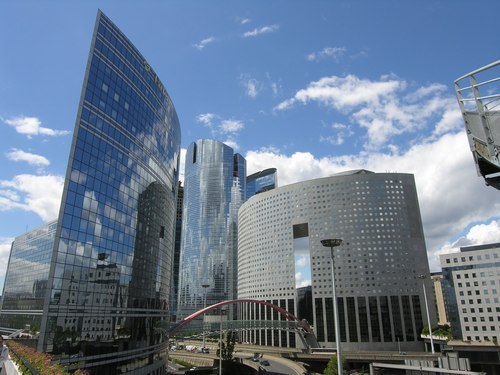
[Berlin again, tucked away, much underrated]
Bitcoin’s hopping up and down in ‘real’ currency terms and everyone is happy to declare it all a pyramid game.
It is, but so is any other currency issued on the promise of maybe some future repayment in … the same or another currency. The underlying value of any currency depends on the future income stream of the issuing entity, or intermediate trade for … other currencies, services, or goods. Exactly like Bitcoin.
Except, of course, that ‘normal’ currencies are issued by governments, geography-based entities from the past when geography mattered.
But does it, still, today, much ..? And will it in the near future? Aren’t we already in a blended world, a blended society, where for the lower layers of Maslow’s pyramid we’re still physical entities and hence geography-dependent (safety, water, food, shelter, etc.) but for the higher layers (group belonging, recognition, self-actualisation) we don’t care from where it comes ..? Once our (developed) world develops further, with so much more automated, silicon- rather than carbon-based, intelligence and sentience becoming available, will the importance of the lower layers not diminish ..?
Up to a point, I know, we can’t ‘shed’ the lower layers. Though the Singularity could, almost, and could at least do without us…
But that’s not the point. the point is that if the sovereignty of nations, understood here in the narrow sense to regard the right and possibility to create and issue money at will, backed by a grossly overestimated guarantee (would you dare to guess how often governments have declared insolvent, in the past few centuries alone ..? On the principle, they all were and are equals…), is lost because others can have the same sovereignty and other sovereignties previously reserved for nation-states, why would we still regard nation-states as the highest entities ..?
[You will now point out that some nations of nation/states spring up, e.g., USofA (sic), EU, UN; right, but their structure is just an amalgamated mesh of more of the same]
And, why would we regard what we previously had, as currency, while not understanding Bitcoin and the many others around (see this and that, possibly incomplete), as such, too ..? Or would we need a ‘real’ economy to underpin a currency; where would you draw the line, then..? What would be the link between a currency and its ‘underlying’ economy, what would be the boundaries of the economy, what definition of sovereign debt would we include or not (there’s many definitions; e.g., would we include guarantees?), how would we establish a ‘value’ in what other ‘currency’..? Gold has been dethroned, remember?
So, we need to study harder, and all of us need to understand more, about the nature of money altogether and only then take a look at digital currencies and their merits (or non-). Would anyone have pointers to good in-depth on-line courses or so ..?











